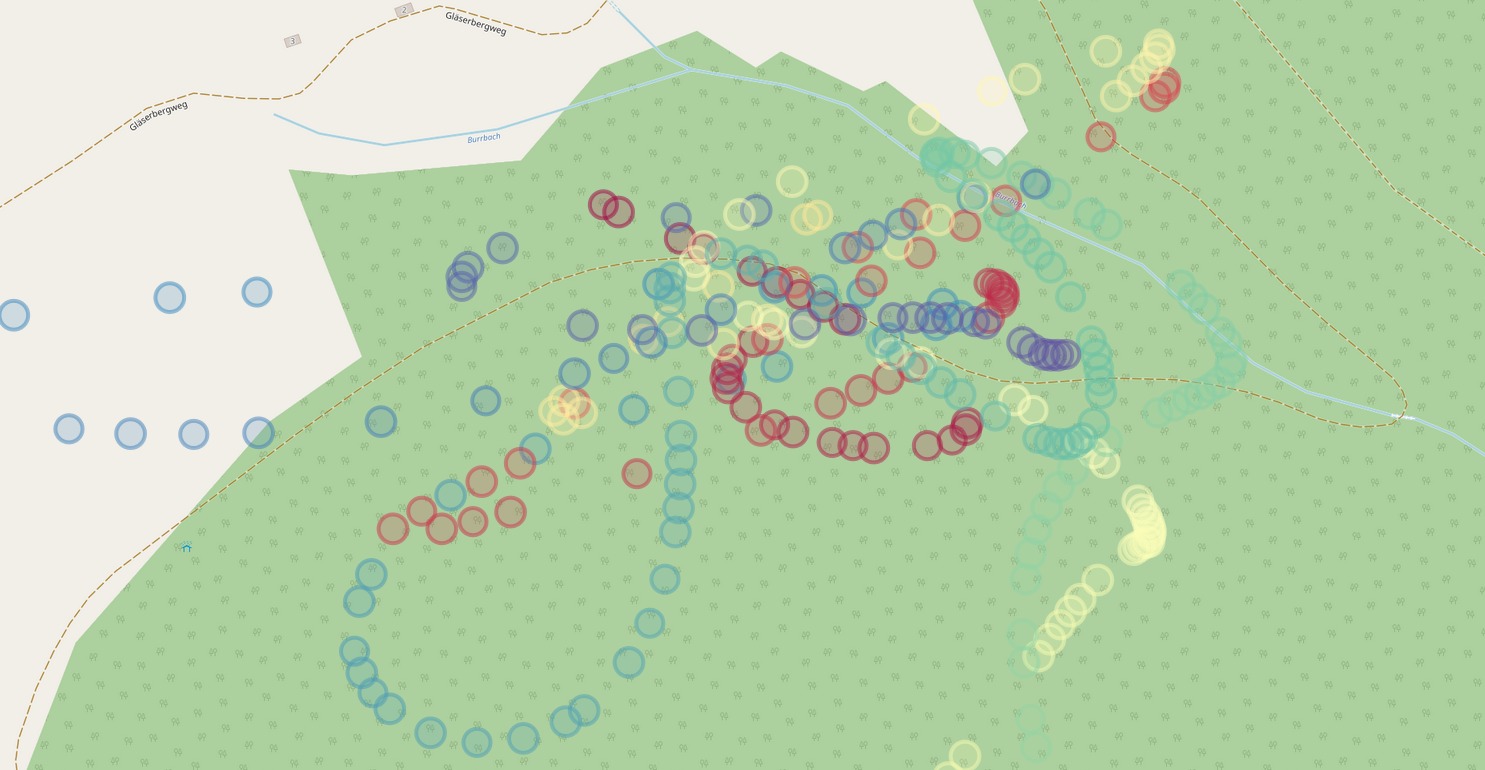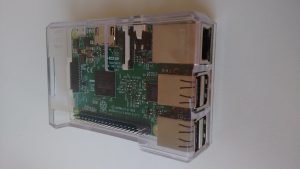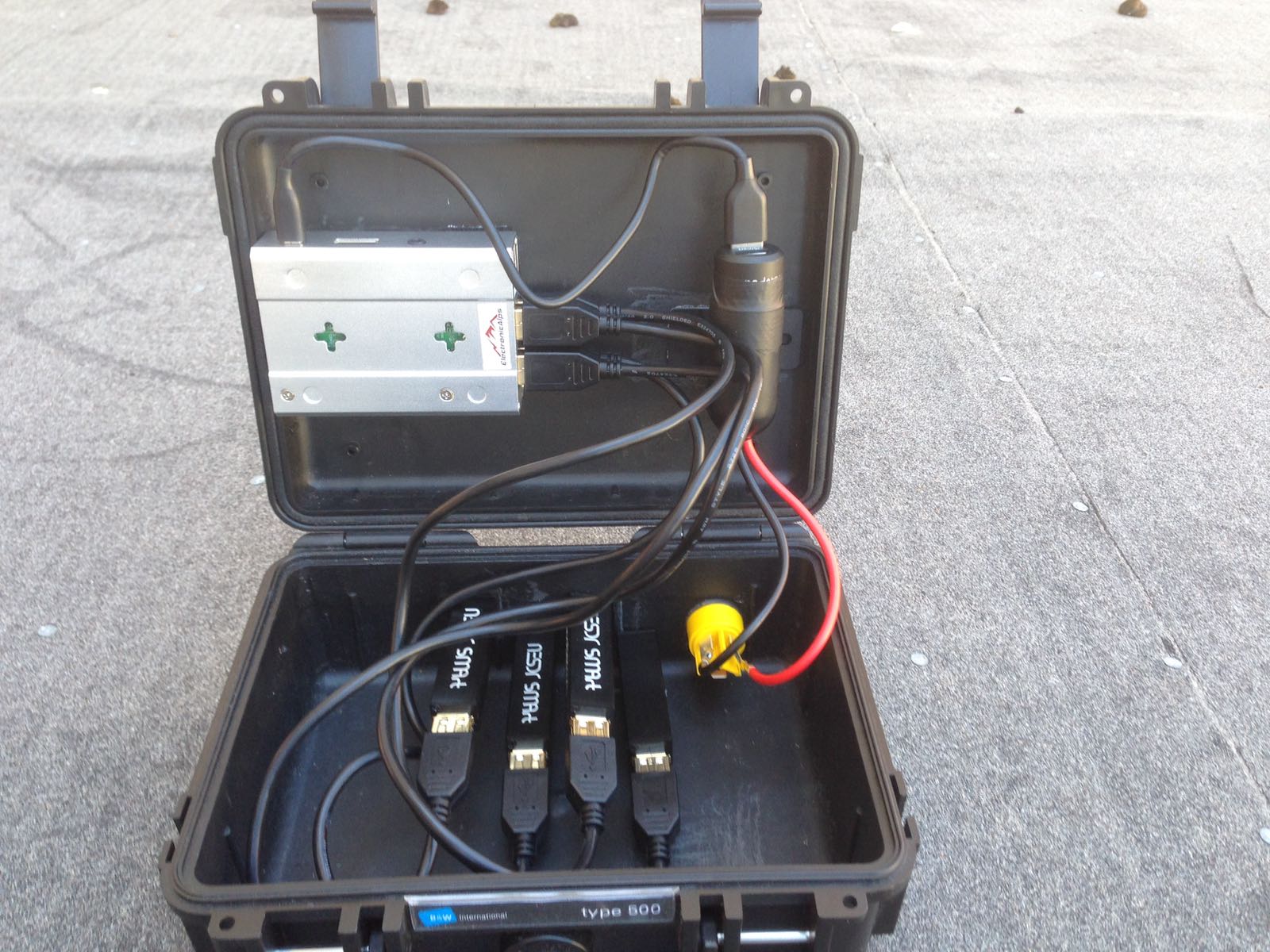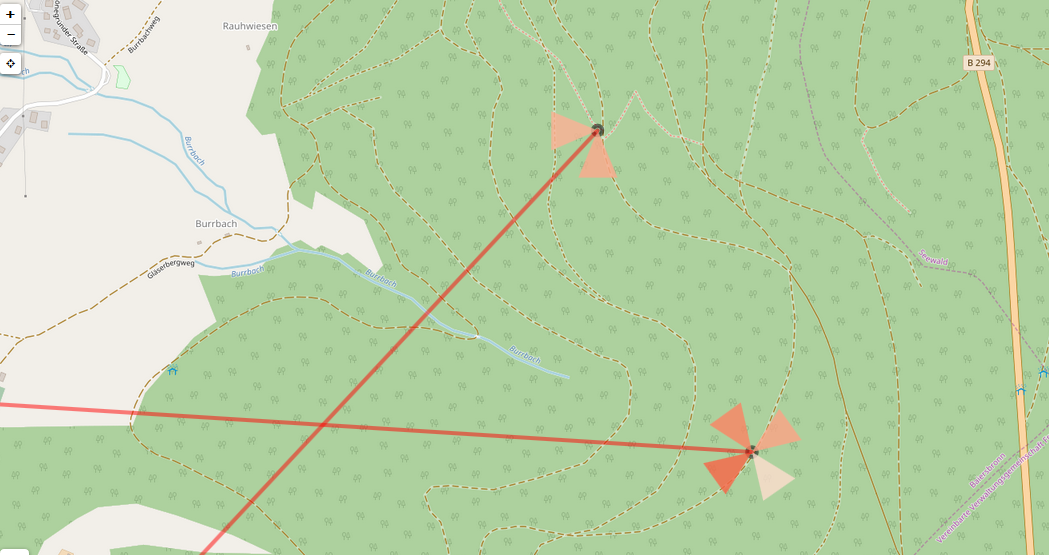
Introduction
The aim of this open source project is to develop a system to monitor the movement/location of small animals using radio transmitters and receivers. A main focus is, that non-technical users can assemble and operate it via a standard web browser.
Basic idea
First we need an animal, for example a bat.

On the bat we mount a radio transmitter. Those transmitters are nothing new and are distributed by many manufactures. They are transmitting one "beep" or a set of four short "beeps" on a predefined radio frequency . The bat can thus be identified with the preknowledge of the transmitting frequency and the time intervall between two "beeps" or the set of "beeps". If you use transmitters with a set of four "beeps", the lag also helps to identify the transmitter.

To receive the signals of the radio transmitter, we need an antenna and a receiver. The antenna might be either a directional antenna (receives better in a specific direction) or a dipole antenna (no preferred direction). The advantage of a directional antenna is, that you can identify the direction where the bat might be.

The receiver is now the new part in the setup. Instead of using the typical distributed receivers, we use a SDR (Software Defined Radio) USB dongle and connect it to the antenna. Those dongles are cheaper an can be directly connected to a computer.

For the field application it is easier to take a Raspberry Pi mini computer than a desktop pc or a laptop. It is cheaper and it's power consumption is lower. And again, the setup is easy. You just need to assemble the parts, download the image file, copy it on the SD-Card and plug it into the Raspberry Pi. To start the receiver, you just have to connect to the wifi hotspot and tune to the frequency of you radio transmitter using your browser.

An example of the setup:


Example of the triangualtion:
